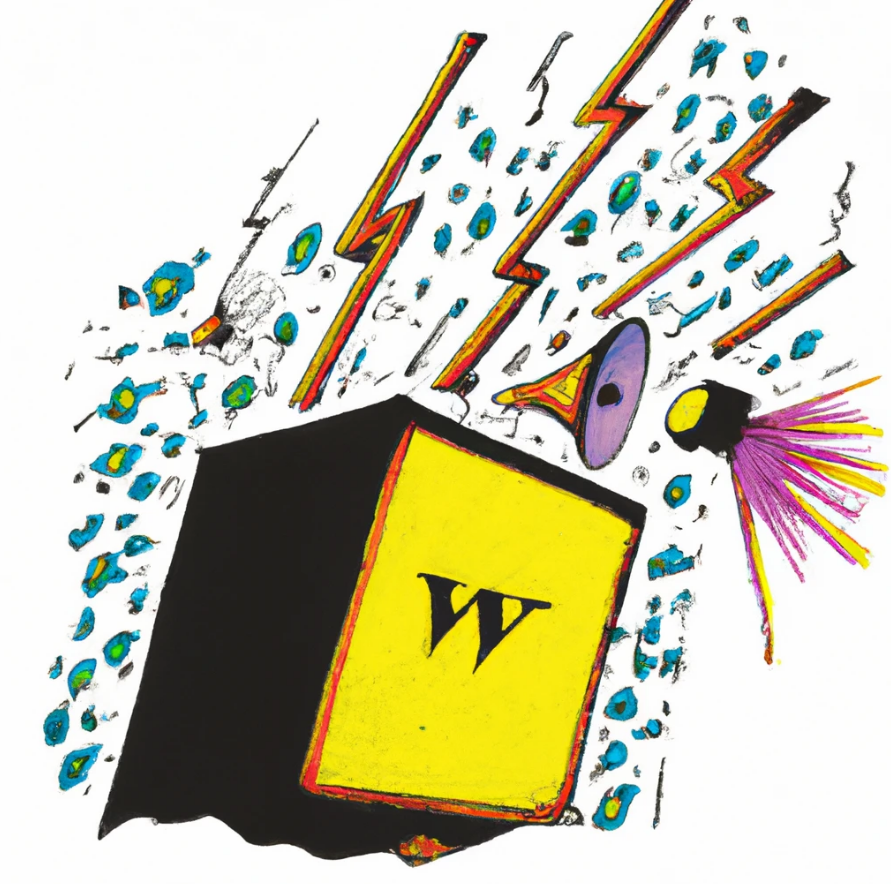Have you ever been in the middle of watching a calm, serene TV show, and suddenly found yourself jolted to attention by an extremely loud commercial?
Maybe you fell asleep in front of the TV, and the jarring sound of a loud commercial woke you up.
You might wonder why commercials are so loud. It turns out that there are actually federal laws in the United States regulating the loudness of commercials.
Not every commercial necessarily follows the law, though, and there are a variety of situations where a commercial can seem louder than it should be.
Let’s explore why commercials are so loud, and what you can do about it.
The CALM Act and the History of Loud Commercials
Decades ago, advertisers had a lot of control over the volume of their commercials. As a result, they often made their commercials far louder than standard programming.
The reasoning makes sense from a business standpoint. Television ads are all about attracting attention from viewers. If your commercial is way louder than the show it airs on, it will stand out and grab the viewer.
The issue is that it became an arms race, with advertisers constantly upping the volume in order to be the loudest commercial and to attract the most attention.
Ultimately, the Federal Communications Commission (FCC) stepped in. In 2010, Congress passed the Commercial Advertisement Loudness Mitigation act, or the CALM Act. The act regulated the loudness of commercials, ensuring they wouldn’t be substantially louder than accompanying programming.
That’s right; since 2010, it has been illegal to air an overly loud television commercial in the United States!
Why are Commercials Still So Loud?
Although the laws now prohibit overly loud commercials, there are still some reasons that you might hear an ad and think “that’s so loud!”
Your TV is Set Up Wrong
According to the FCC, many people hear loud commercials because their television is set up wrong.
Even if a commercial is technically within legal limits, it can still seem too loud to certain viewers. For that reason, the FCC recommends checking the Audio setting on your television and enabling the Auto Gain Control feature to achieve an even loudness across all programming.
There is a Big Volume Contrast
Imagine that you’re watching a romance show. There’s a tender, quiet moment between two characters. Right as the moment peaks, the show cuts to a commercial.
Bam! There’s a local used car salesperson shouting at you about Memorial Day deals.
You might think that the commercial is too loud, and that it just be in violation of the law. But in reality, what you’re noticing may simply be a big volume contrast.
Going from very quiet to very loud sounds is especially jarring for our ears and brains. The contrast between a tender, quiet scene and a louder commercial might be very startling, even if the actual commercial is within legal limits.
If you heard the same commercial in the middle of an action show with car chases and explosions, it might not seem that loud.
The Commercial is Quiet on Average
There’s a big technical loophole in the CALM Act. To evaluate the loudness of a commercial, the FCC looks at the average loudness across the whole commercial, not at the loudest moment.
That means advertisers can have sections that are extremely loud for a short time, as long as they’re balanced out by very quiet sections.
The loud sections might startle you, but technically, the average volume of the commercial is within limits.
It’s a bit of a sneaky tactic, but many advertisers appear to get away with it.
The Commercial is Illegal
Of course, it’s also possible that the television station or the advertiser is actually violating the law, and the commercial is indeed too loud.
If that’s the case, the FCC won’t necessarily know about it immediately. The agency says that it does not actively monitor for commercials that are too loud.
That means many advertisers, especially on smaller local broadcasts, may have an incentive to game the system and make their commercial too loud.
It’s also possible that a technical glitch could cause a commercial to be too loud. Tv stations make mistakes, and they may not have edited the commercial properly.
What to Do If You Hear a Commercial That is Too Loud
If you hear a commercial that is too loud, you can take action. Again, the FCC says that it doesn’t actively police or monitor the loudness of commercials.
Instead, it relies on viewers to report too loud commercials, which the agency can then investigate.
If you hear a commercial that seems too loud, do the following:
- Note whether you watched the commercial on broadcast TV, cable TV, or a streaming service
- Write down the name of the advertisers and products
- Note the date and time you saw the commercial
- Write down the name of the TV program during which the commercial aired
- Keep track of the name of the TV station as well
You can then go to https://consumercomplaints.fcc.gov/hc/en-us
To file your complaint with the FCC. There is no guarantee that they will act on the complaint, but if enough viewers write in, the agency has the power to fine stations and advertisers who run commercials that are too loud.
If you were startled by a loud commercial, you don’t just need to deal with it. You can take an active role in helping to enforce the CALM act.
Conclusion
Decades ago, loud television commercials could startle viewers, getting their attention with massive volume contrasts.
Today, the CALM act prevents this practice. That said, technical glitches, contrasts in volume and outright violations can still result in commercials that sound so loud you feel like you’re being screamed at.
If you experience a commercial that is too loud for comfort, be part of the solution and report it to the FCC for followup.







